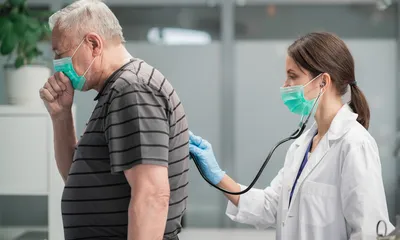How Long is a Bacterial Sinus Infection Contagious

Sinus infections can be very uncomfortable and painful, with symptoms ranging from a stuffy nose to facial pain, fever, and a decreased sense of smell. They are among the most common reasons people visit a doctor. Although viral sinus infections, which usually resolve on their own, are the most common type, this article introduces you to bacterial sinus infections, which occur less frequently and often require medical attention, such as antibiotics. Additionally, we will clarify whether and how long a bacterial sinus infection is contagious, how to prevent developing one, and how to treat it once it occurs.
What is a Bacterial Sinus Infection?
A bacterial sinus infection is usually caused by bacteria like Streptococcus pneumoniae, Haemophilus influenzae, and Moraxella catarrhalis. These bacteria find a suitable environment to grow and multiply after you’ve had a cold, the flu, or when you're dealing with allergies or other upper respiratory issues. In these cases, your sinus passages become swollen, which blocks them, trapping mucus and preventing it from draining properly. Infection occurs when bacteria grow in this mucus, leading to symptoms that tend to worsen over time, including:
Facial pressure or pain
Stuffy nose
Loss of smell
Thick mucus
Discolored nasal discharge
Fatigue
Bad breath
How Long Is a Bacterial Sinus Infection Contagious?
Bacterial sinus infections aren’t contagious, and you can’t catch one through close contact with someone who has it, like you would with a cold. However, it is worth noting that catching a cold or other viral upper respiratory infection can trigger a bacterial sinus infection or increase the likelihood of it occurring. People with a cold start being contagious 1-2 days before they show symptoms, and can spread the virus to others for up to one week afterward.
How to Prevent a Bacterial Sinus Infection?
Bacterial infections can be very uncomfortable, and fortunately, there are several strategies you can use to help prevent them. First, the best way is to avoid getting sick altogether, which, of course, is never enjoyable. This includes washing your hands regularly and avoiding close contact with people who have a cold or the flu. Vaccinations, like the flu shot, can also be an excellent option to help prevent illness, especially for vulnerable individuals with weakened immune systems.
Unfortunately, most of us will fall ill at some point, regardless of our precautions. In this case, addressing nasal congestion and other cold symptoms early is essential to prevent nasal congestion and, consequently, bacterial growth in the trapped mucus. Saline nasal sprays and staying hydrated are effective, natural methods to keep your nasal passages clear, thin mucus, and prevent bacterial sinus infections.
The same also applies to allergies, which should be managed with the appropriate medication, such as Allegra, and by avoiding the triggers that cause them. For example, this might include keeping your windows closed to avoid pollen and maintaining a dust-free home. Avoiding smoking and using a humidifier can also be effective strategies to prevent your nasal passages from drying out and becoming irritated.
How to Treat a Bacterial Sinus Infection?
If you suspect a bacterial sinus infection, see your doctor to confirm and begin treatment if necessary. If your symptoms last longer than 10 days and worsen after initially improving, this may indicate that the infection is bacterial. If needed, your doctor may prescribe you antibiotics such as Amoxicillin or Augmentin. Ensure you take this medication only as prescribed and inform your doctor of any medical conditions or other medications you are currently taking.
In the meantime, you can use over-the-counter pain relievers, such as Ibuprofen, to alleviate discomfort and reduce symptoms like pain and fever. Additionally, saline nasal sprays and rinses, as well as warm compresses applied to the face, may help alleviate your discomfort. Finally, be sure to drink enough water and get proper rest, as this can significantly support your body in fighting an infection and help you recover and feel your best as soon as possible.
IMPORTANT NOTE: The above information is intended to increase awareness of health information and does not suggest treatment or diagnosis. This information is not a substitute for individual medical attention and should not be construed to indicate that use of the drug is safe, appropriate, or effective for you. See your health care professional for medical advice and treatment.


